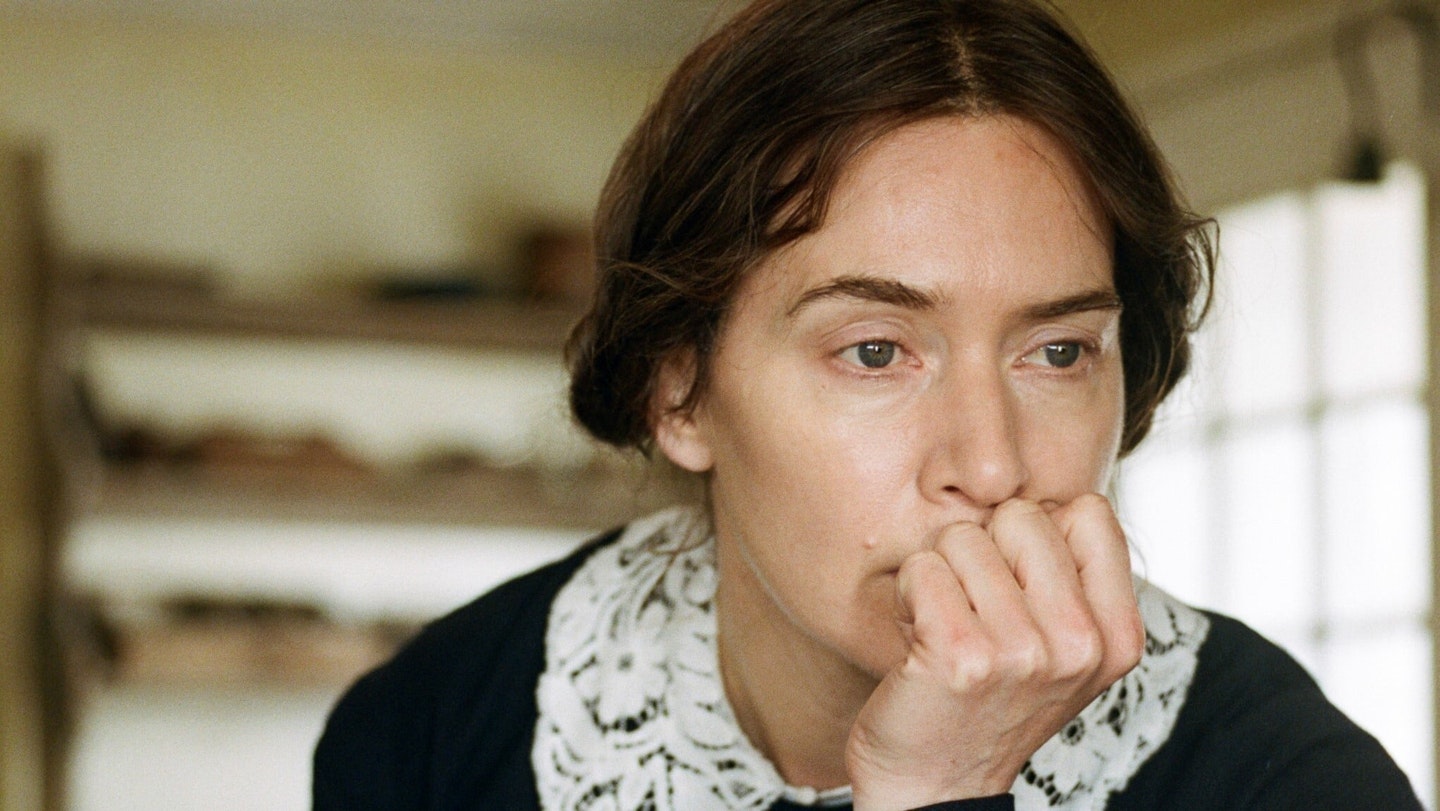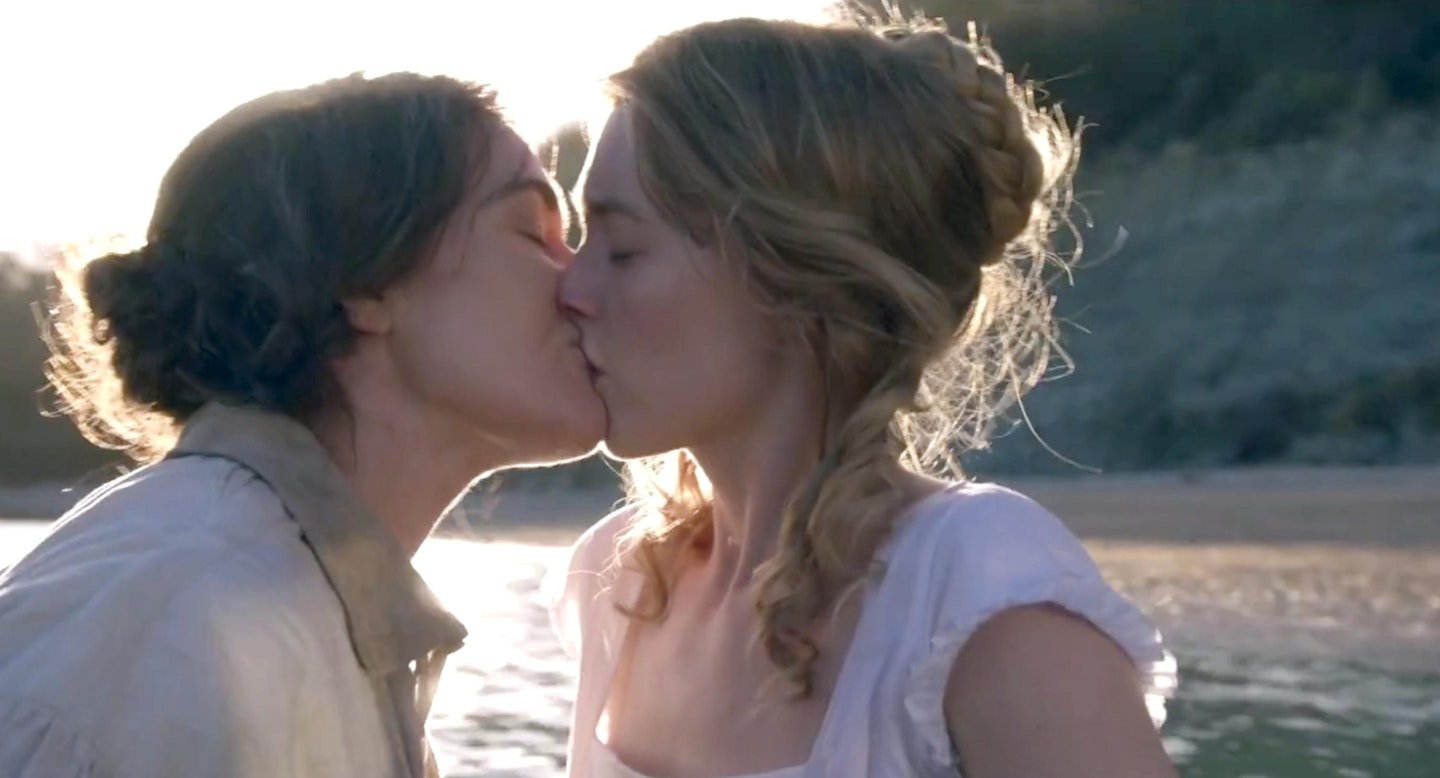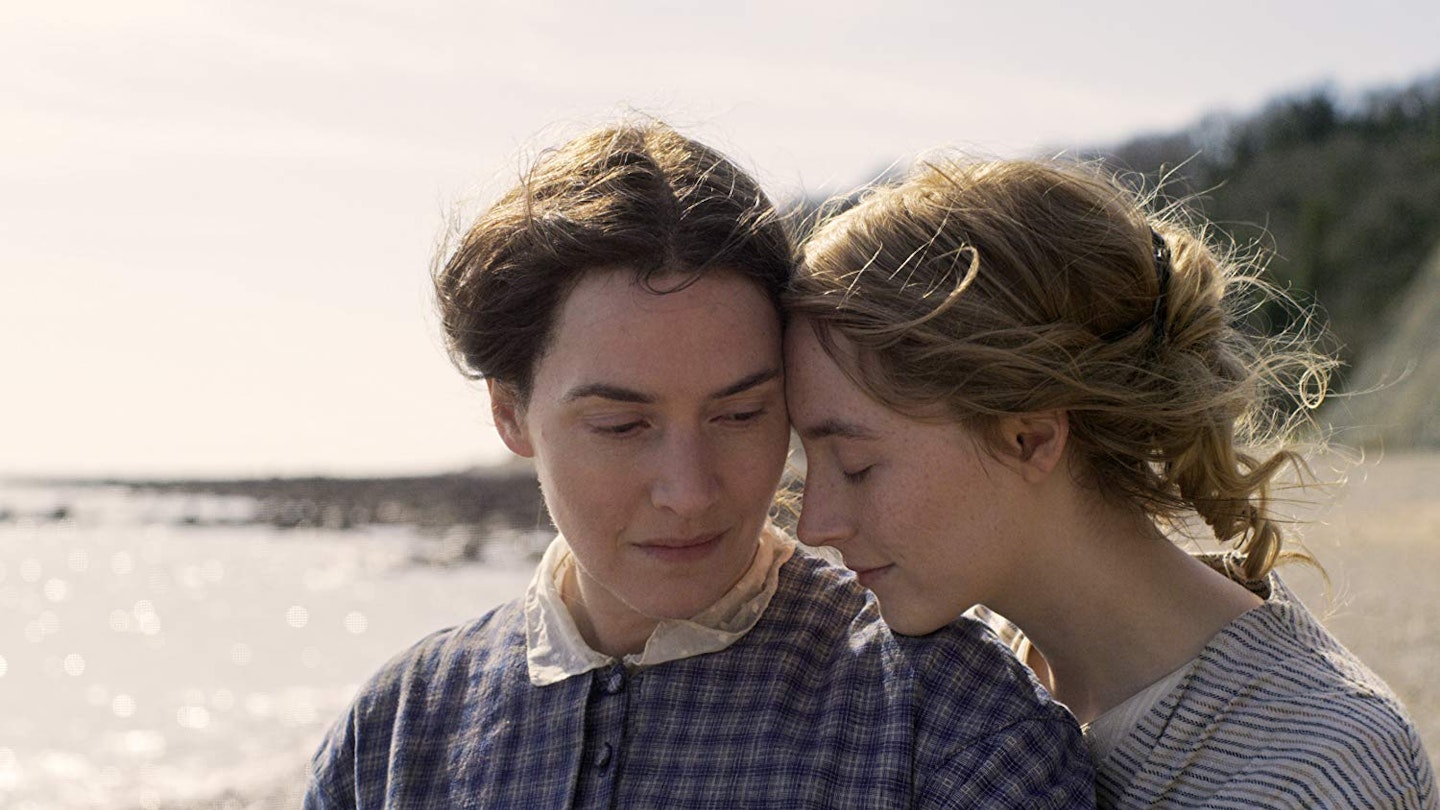Francis Lee's stunning follow-up to 2017's God's Own Country sees Kate Winslet star as British palaeontologist Mary Anning, who, overlooked by her male-dominated profession, scours the coast of England looking for fossils to sell to tourists. That is until the arrival of Charlotte (Saorise Ronan), a married woman come to convalesce by the sea, with whom she begins an intense relationship. Read the Empire review of Ammonite here.
Winslet stopped by the Empire podcast this week to talk to Empire Editor-In-Chief Terri White about making the film, her working class roots, and the strange taboo around same-sex love stories. To hear the interview in full, subscribe to the Empire podcast.
You’re no stranger to period dramas, but what was different about Mary Anning, for you?
So often, I've played the period women who are in corsets and really pulled together, whose only motivation is to take some nice walks, and maybe do a bit of poetry, but whose objective in life is absolutely to be wooed by a man, be married off, and financially taken care of. I felt admiration for Mary Anning, given that she was none of those things. More importantly, she was dealt such a rough hand, particularly by men, because she lived in a patriarchal society. The world of geology was dominated by men, and they took her finds and reappropriated them as their own. They actually bought them from her and claimed they were theirs! And to me, that's not right. So, to step into her skin and try my best to become who I believed she was, with all of her formidable skills and remarkable determination in the face of such harsh judgement was amazing. I found her to be a very powerful, quite unique individual.

It’s extraordinary that you've never played a working-class woman in period, which probably speaks to the fact that there aren't loads of those characters. But you do come from a working-class background. Do you think people sometimes forget, because you speak beautifully?
I think it's not so much “forget” as perhaps “don't really know”, and I definitely think it’s because I have played these beautifully pulled-together, composed women in period films, who have spoken very well — certainly in my early twenties. I'm deeply proud of where I come from; I did absolutely come from a working-class background. I come from a pack of impoverished, out of work actors who spent more time digging roads, laying tarmac and being postmen than actually acting. They certainly never made a living from it. So I'm a very unlikely success story. It was wonderful to play someone like Mary who did feel much closer to my own upbringing than some of the other period roles I've ever played.
How important do you think it is to show alternate working-class stories on screen?
Francis absolutely wanted to show the profound brilliance and mind of a woman who’d never had recognition. Just because Mary was a woman, people questioned her mind, they questioned her scientific discoveries. They even tried to say that they were a hoax, or that she was a freak- she was subjected to such extraordinary scrutiny just because she was a working-class woman. It was very important for Francis to sing her praises, and to celebrate her. I certainly enjoyed being a part of that with him, it really felt good to give her that power.
I come from a pack of impoverished, out of work actors who spent more time digging roads, laying tarmac and being postmen than actually acting.
What about sexuality? Mary has the relationship with a woman, played by Saoirse Ronan, and this relationship vitally isn't about shame. It's about love.
Exactly. I think you've really hit the nail on the head there. One of the things I appreciated so much about our narrative is that it is completely devoid of hesitation or fear - there's no secrecy around the relationship between Mary and Charlotte. There's nothing socially forbidden about it within our narrative. Often with same-sex love stories of a period nature, the fact that they may have been perceived as wrong immediately becomes a part of the narrative. I love that we just normalise this love story, this connection between these two women, by keeping all of those other elements well away. It's just a story about two people who fall in love - the fact that they are women is never addressed or mentioned in any way or explained or justified. The latter is the most important part of all of it. It's interesting, isn't it? Because there is no historical documentation about Mary Anning's love life, none whatsoever. But you can bet your life that if Francis Lee had chosen to pair her with a man, no one would have said anything.
Why do you think people respond to that almost as a negative, giving her a same-sex relationship?
I don't know. But it definitely makes me feel quite sad. I really don't understand that. I don't understand at all. What difference does it make? I just I find it really baffling. I'm such a believer that LGBTQ+ films have their rightful place in the mainstream, and I really hope that, by making Ammonite, we've been able to make a helpful contribution to the evolution and progression of that conversation. If we had more LGBTQ+ films in the mainstream, we wouldn't feel so automatically compelled to compare the few that do exist. I don't know why so few exist. It's very odd to me.

Often with same-sex stories people become quite fascinated with the sex element over the love element.
You're absolutely right. There are even different words used to describe same-sex intimate scenes on film than the vocabulary used to describe heterosexual love stories. To me that doesn't seem right at all, and I think that we can all play our part in using our descriptions much more mindfully. I've been completely staggered when people describe the love scenes between two women on film, including Ammonite, as erotic, controversial. Why? Why can't they be powerful, connected, grounded, intimate, visceral, deep. Why can't we use those words? It's utterly weird that these sort of strange, dated, almost porno-type words are used. That's not right.
Ammonite's a bit of a continuation of what Francis started with God's Own Country.
I absolutely loved God's Own Country. I think, again, it's for the same reasons that I really loved Ammonite, when I first read the script, is there was no degree of explanation or apology made for the fact that God's Own Country is a love story between two men. It is just a story about two people, two opposites, who connect in the way that they do, and find their way towards each other. In the same complex ways that any person who falls in love can sometimes experience, and without adding that element of shame. It's really admirable, as a filmmaker, for Francis to have been able to make those choices. I admire him enormously for it, I really do. I feel very proud to have been a part of telling one of his stories.

Graft was another big thing for you on this film, wasn’t it?
Yes. It was definitely tough. Mary was physically challenging because I had to inhabit her and keep her in my body in many ways. Her physical energy and posture are so different to mine that I had to quiet my whole nervous system down in order to try and be her, to capture that very held, quite isolated demeanour that she really does carry around with her at all times, and how she uses her eyes so often to convey what she's feeling. Sometimes I felt like I had to learn how to act with the back of my head, or the backs of my hands. It's quite a strange challenge as an actor, and certainly not things that I've necessarily had to do before. I definitely had to defer to Francis a lot when I would say, “In this silence, maybe she would just sigh, or perhaps she would just move her hand across her forehead?” He would say, “No, no, just trust the stillness, Kate. You have to earn every movement.” That did not come naturally to me at all. So, thank God he was there.
You lived alone for part of the shoot, because she was an isolated woman. Was that something you’d done before?
Well, I have a family and I'm a mum, and that's obviously my entire world. You know, I’m just like the rest of us. I fall asleep at night making shopping lists and trying to work out if all the P.E. kits are washed and ready by the front door. I know that's hard for people to believe. So, [living alone] was quite strange. Last night I found a lovely card that my husband wrote for me when we wrapped Ammonite, just talking about how wonderful it was that I was back. He said, “It was rubbish in the week when you weren't here, and we all missed you terribly”. So, it was a big deal for us as a family to be okay with making that decision. But I just couldn't have played Mary any other way. If I'd come home to the dog jumping up at me, and everyone wanting dinner and the chaos of our life and our world, I think I would have felt as though what I was trying to do with Mary had been infiltrated by a bunch of pirates.
Ammonite is out now on VOD. Rent it from Amazon here{
